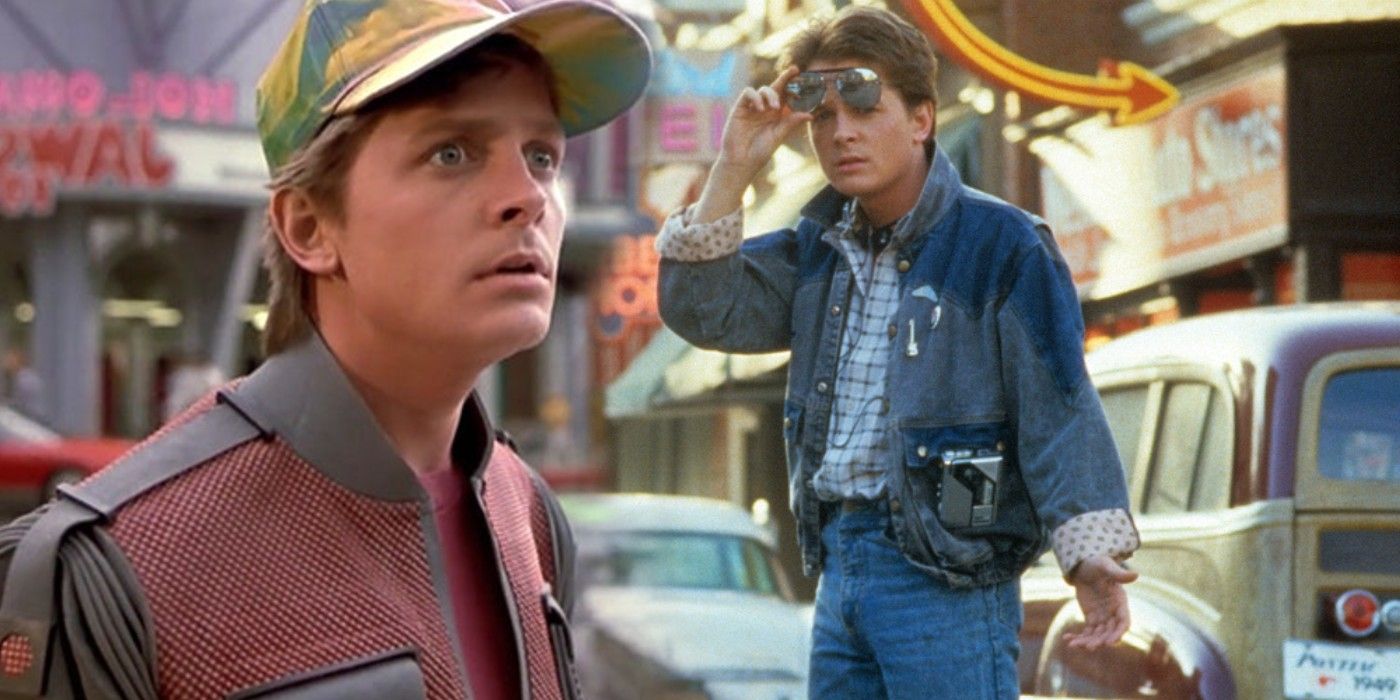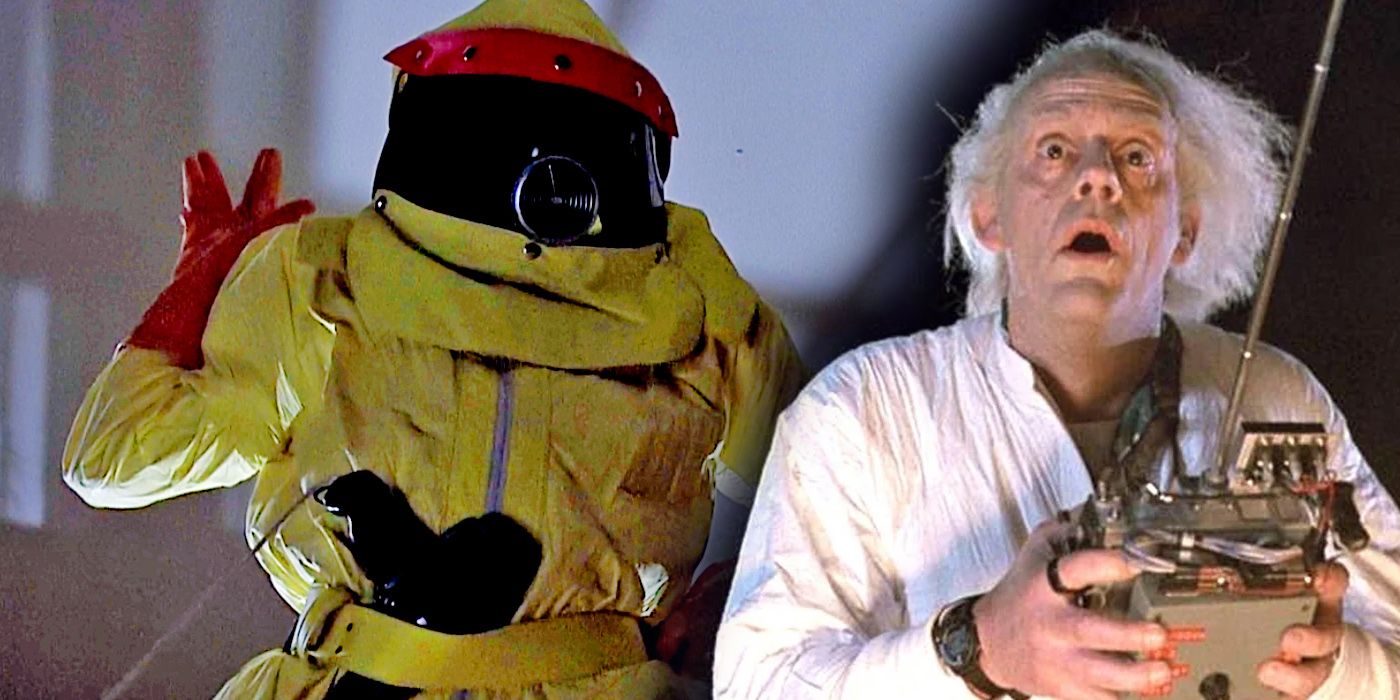
The Back to the Future franchise is no stranger to plot holes, and during Doc and Marty's exciting conclusion to the original 1985 film, a question arises regarding its time-travel logic. Of course, Back to the Future is not only one of the foundational time-travel films, but one of the most beloved movies ever made. Its playful 80s and 50s aesthetics, zany and entertaining characters, and high-concept story have cemented its place in the canon. But as with many pioneers, it's a little rough around the edges — particularly where temporal paradoxes are concerned.
In the film's third act, Marty struggles with telling Doc about his untimely fate at the hands of the Libyans, but ultimately returns home to 1985 ten minutes early in an effort to save his friend. By returning early, he's able to witness himself fleeing from the Libyans. This raises the question: who is the Marty that we see leave in the DeLorean? Is this Marty a new, different person created in the new timeline, or is it just the same Marty who's witnessing himself and Doc from over the ridge, merely at a different time in his life?
To find the answer, it's helpful to follow this new Marty as he continues his journey. When old Marty, the one who's just harnessed lightning to return to '85, arrives at the parking lot, he's witnessing himself go back to 1955 in the first place — only he isn't. New Marty, whose timeline has been altered by Marty and Doc's hijinks throughout the 2nd act, can boast two accomplished and secure parents to his name. Nevertheless, he sees New Marty go back in time, where New Marty presumably endures the same challenges, and ultimately returns to the parking lot, only to see yet another New Marty.

The paradoxical implications of Back to the Future's time travel logic are infamous. The film suggests that the past is a place, and that it can be visited if the right vehicle was developed. The film also suggests that there is but one timeline, not branching or parallel timelines, so consequences of altering past events reveal themselves in the present or future. But the film then suggests that Marty's memories of his lived past aren't altered, as he is surprised by how his parents have changed. Following New Marty through the chain of events creates an infinite loop, so how do we make sense of the movie's time travel logic?
Back to the Future may not be paradox-free, but why should that hinder the enjoyment of this classic? If an infinite "New Marty" time loop got in the way of an eminently entertaining story, perhaps the movie wouldn't be the success it is today. But it is, so naturally, it didn't. Director Robert Zemeckis and writer Bob Gale hoped audiences wouldn't feel compelled to pick apart their hair-brained adventure until it fell to pieces, and unfortunately for them, keen-eyed fans know no limit to over-analyzing. Nevertheless, Back to the Future remains an exemplar of the genre.
https://ift.tt/3pUApsk
February 28, 2021 at 05:10AM




